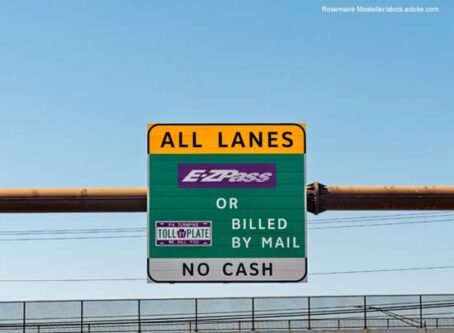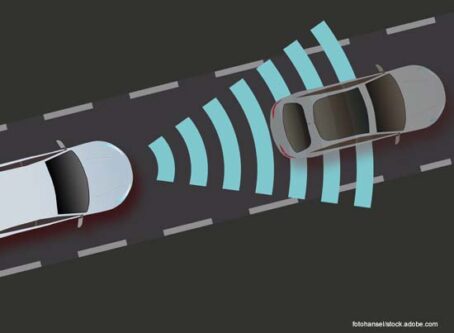Ticket camera rules addressed in at least 13 states
Following the recent federal guidance authorizing states to tap billions for roadway safety programs, state legislatures across the country are adopting and pursuing legislation on the topic of automated ticket cameras to catch drivers violating the law.
Just over one year ago, Transportation Secretary Pete Buttigieg announced plans to address a record increase in traffic deaths on the nation’s highways. Automated ticket cameras were included among the tools identified to aid the reduction of fatalities.
The U.S. Department of Transportation’s national roadway safety strategy addresses the administration’s goal for the program.
“Automated speed enforcement, if deployed equitably and applied appropriately to roads with the greatest risk of harm due to speeding, can provide significant safety benefits and save lives.”
Ticket camera issue addressed in at least 13 statehouses
More than 500 communities around the country employ the use of red-light and/or speed ticket cameras to nab drivers who disobey traffic rules, the Insurance Institute of Highway Safety reports.
Officials with the Owner-Operator Independent Drivers Association say the focus on the revenue-generating devices ignores the more logical and reasoned approach to roads and traffic: keep traffic moving in as safe a manner as possible.
Below is a rundown of recent statehouse activity on the topic.
Arizona
One Arizona bill nearing passage would prohibit the use of photo enforcement on state roadways.
IIHS reports that photo enforcement is available to 13 communities around the state.
SB1234 would outlaw use of red-light and speed ticket cameras to enforce traffic rules.
Sen. Wendy Rogers, R-Flagstaff, has highlighted her concern about city governments using the devices as money makers for her pursuit of statute to forbid photo enforcement. The rule would apply to a local authority and state agency.
The House could soon vote on the bill. If approved, SB1234 would head to the governor’s desk. Senate lawmakers approved the bill in February.
Colorado
A Colorado bill would allow for more speed cameras.
State law restricts the use of speed cameras to areas that include construction zones. An officer is required to be present when a speed camera is in use.
Notice of a violation must be issued and sent to the vehicle owner within 90 days of the violation.
The Senate Transportation and Energy Committee is scheduled to hold a hearing Wednesday, April 5, to discuss a bill that would allow municipalities to designate corridors where speed cameras may be installed. Signage requirements are included.
The bill, SB200, would also do away with the requirement that an officer be on site.
First-time offenders would receive a warning as long as they are driving less than 10 mph above the posted speed limit. Fines would be capped at $40.
Notification of violation would be required to be sent to a Colorado-registered vehicle owner within 30 days. Notification to out-of-state vehicle owners must be sent within 60 days of the violation.
Additionally, local governments could prohibit the in-state vehicle owner from registering their vehicle or transferring the title until fines are paid.
Connecticut
In Connecticut, two bills would greenlight more access to automated enforcement.
State law authorizes the use of speed ticket cameras in work zones. Statute does not cover red-light cameras.
The first House bill, HB5917, is a comprehensive effort to address road safety. It contains a provision to permit municipalities around the state to utilize red-light cameras and speed cameras in areas that include “pedestrian safety zones” and at sites within a municipality “that had a history of traffic crashes caused by excessive speed or by violations of a traffic sign or traffic signal.”
Municipalities would be required to adopt an ordinance authorizing cameras.
First-time violators would be fined up to $50. Violations would be limited to exceeding the posted speed by at least 10 mph or running a red light.
The second bill, HB6625, applies solely to the city of Waterbury.
The bill would authorize a red-light ticket camera program in the city located between Hartford and New Haven. Fines would start at $50.
The Motor Transportation Association of Connecticut opposes the effort.
The group says the implementation of red-light cameras “inevitably results in costly infractions to all motor carriers and increased risk of accidents.”
MTAC President John Blair recently told members of the Public Safety and Security Committee one of the group’s concerns involves unfair costs for motor carriers turning left in an intersection to give way to oncoming traffic.
“Tractor-trailers turning left due to their size must take more time than a passenger vehicle when turning left at a red light,” Blair testified. “In many instances, as the truck waits out oncoming traffic the backend of the trailer is caught by the red-light camera. In this instance, the driver is doing what is safest for all and should not then be tagged with a hefty fine.”
Illinois
A pursuit at the Illinois statehouse is intended to rein in use of automated enforcement programs.
There are 68 locales around the states that use red-light cameras, the Insurance Institute for Highway Safety reports. The city of Chicago has red-light cameras and speed cameras. Additionally, speed cameras are permitted in work zones.
SB313 would repeal authority for local governments to use red-light cameras. Speed camera enforcement authorization in Chicago would also be removed.
The city started issuing $35 tickets for speeding 6-10 mph over the limit since March 2021. Fines for speeding in excess of 10 mph over the limit are set at $100.
Indiana
The Indiana Senate voted on Tuesday, April 4, to advance an amended bill that would authorize the Indiana State Police to set up cameras in highway work zones to enforce speed limits.
State law now authorizes fines between $300 and $1,000 for speeding in work zones. Statute does not allow nor prohibit the use of speed cameras.
The legislation, HB1015, would punish drivers for exceeding the posted speed in work zones by at least 11 mph. Devices would be in use when workers are present.
Offending vehicle owners would receive a warning for a first offense. Repeat offenders would face $75 fines. Subsequent offenses would result in $150 fines.
A fiscal impact statement attached to the bill shows an average of 1,675 guilty verdicts in Indiana were entered for speeding in a work zone annually over the past seven years.
The revised version heads back to the House for final approval before heading to the governor’s desk.
Iowa
An Iowa bill would prohibit the use of ticket cameras along certain roadways.
State law does not prohibit nor allow the use of speed and red-light cameras. However, the state’s Legislative Services Agency reports there are 19 cities and towns that operate automated or remote systems for traffic law enforcement.
HF628 would forbid municipalities from posting traffic enforcement cameras along primary and secondary roads including interstates. The rule would not apply to the state.
Municipalities could use cameras to enforce traffic rules on municipal streets.
Fine amounts would be limited to 5% of the applicable scheduled fine or civil penalty for the violation under state law.
Michigan
Two Michigan House bills would authorize automated speed enforcement in work zones.
Currently, no communities in the state employ the use of red-light cameras and speed cameras.
The bills would allow speed ticket cameras to enforce vehicle speeds in work zones on a highway or street.
HB4132 and HB4133 would give the Michigan State Police and the Michigan Department of Transportation permission to utilize automated enforcement.
Devices would be authorized for use when construction workers are present. Owners of vehicles found traveling at least 10 mph above the posted speed limit would receive violation notices in the mail.
First-time offenders would receive a written warning in the mail. Repeat offenders with violations within three years would face fines up to $150. Subsequent offenses would result in fines up to $300.
A sign must be placed prior to where the work zone begins to notify drivers about the automated enforcement.
Additionally, a work zone safety fund would be created with the state DOT coordinating with state police and local law enforcement to increase police presence within work zones, to fund devices, and to make other safety enhancements.
New Jersey
A bill halfway through the New Jersey statehouse is intended to limit the effect of red-light and speed cameras.
The Garden State does not employ the use of ticket cameras. Other states in the Northeast, however, do utilize automated enforcement methods.
The New Jersey Senate voted unanimously during the past year to advance a bill to prohibit the state’s Motor Vehicle Commission from providing identifying information for New Jersey licensed drivers to camera enforcement entities in other states.
Titled the “Camera Enforcement Inoculation Act,” the legislation is modeled after a South Dakota law that prohibits the state from sharing information with other states for the collection of civil fines that result from camera tickets.
The bill, S460, has moved to the Assembly.
New York
A handful of bills at the New York statehouse are intended to further deter red-light and speeding violations.
The state authorizes the use of red-light and speed cameras around the state.
AB698 /SB1652 would implement escalating penalties for vehicles with multiple photo monitoring device violations.
Specifically, after six violations over a two-year period the registration for the offending vehicle would be suspended for 90 days.
Escalating fine amounts would also be imposed. Fines for first-time and repeat offenders over two years would be $50 each. Fine amounts would increase up to $350 for a sixth violation over two years.
“This bill, through its escalating fine structure, insurance reporting, and ultimate vehicle registration suspension is meant to deter drivers from speeding and behaving recklessly while operating a motor vehicle,” states the bill memo justifying the legislation.
Another bill, AB671, also call for suspension of vehicle registration for multiple photo violation monitoring violations.
The length of suspension would be dependent on the number of violations in either a 12-, 24-, or 36-month period.
Six violations over a 12-month period would result in a 15-day suspension. Registration suspension would top out at 90 days for vehicles with 12 violations over 36 months.
Similarly, SB451 would authorize a year-long suspension for vehicles with five violations within 12 months.
New York City is the focus of another bill that addresses red-light camera use.
Since 1994, a program enables the use of red-light cameras at 150 intersections across the city.
SB2812 would renew and expand the city’s red-light camera program to permit 1,325 intersections to be posted with the devices.
Intersections posted with red-light cameras have seen a 58% decline in the number of severe injuries from collisions compared to the three years prior to installation, the bill memo reads.
“This commonsense reform would allow the cameras to be placed at 10% of city intersections.”
Notifications of photo monitoring devices is the topic of another bill.
SB2113 would require that street notifications be posted whenever a photo-violation monitoring device is in use.
“If speed cameras were truly about improving safety and not as a way to raise revenue, then notifying drivers where speed cameras are located would only serve to slow down drivers in those areas,” the bill memo reads.
Oregon
There are 10 cities in Oregon, including Portland, where photo radar is permitted on segments of roads. Tickets are issued for violators exceeding the posted speed by more than 10 mph.
Speed radar in affected locales is limited to use for up to four hours per day.
The full House could vote on a bill as soon as Wednesday, April 5, to authorize all cities to use photo radar. Additionally, HB2095 would eliminate the restriction on number of hours per day that photo radar may be used in any one location.
Cities would also have authority to change and determine speed on different segments of the roads up to 10 mph below the statutory speed, providing the designated speed is not less than 20 mph.
Texas
Red-light camera use in Texas is nearing extinction. Multiple pursuits at the statehouse would quicken the process.
A 2019 state law prohibits cities from using photo systems to fine drivers for running red lights.
The rule change took effect immediately. However, a provision was included in the law permitting cities to continue ticket system contracts until they expire.
Nearly all of the 57 communities throughout Texas that employed red-light cameras took advantage of “early out clauses” in their contracts to end programs when the new rule was enacted. The clause allowed locales to nullify agreements when the state banned the ticketing machines.
Three locales around the state continue with their red-light camera programs due to contract clauses that do not permit early outs.
The cities of Balcones Heights and Leon Valley in the San Antonio area have contracts that run through 2034 and 2039, respectively.
Elsewhere, the city of Humble must continue with its ticketing program through June 2024.
House and Senate bills would nix the continuing red-light ticket camera contracts.
HB177 and SB446 would void contracts that remain in effect.
The change would take effect immediately if it receives a two-thirds vote by the legislature. Passage that does not meet the vote necessary for immediate effect would delay the effective date until Sept. 1.
SB446 received a Senate Transportation Committee hearing on March 29.
Virginia
A new Virginia law authorizes red-light ticket cameras in the city of Hampton.
Previously SB861, the new law permits a “traffic control device violation monitoring system” at any intersection deemed to be “negatively impacted by traffic” due to the Hampton Roads Bridge-Tunnel expansion project.
The project is widening the current four-lane segments along nearly 10 miles of the I-64 corridor in Norfolk and Hampton, with new twin tunnels across the harbor.
The monitoring system authorization would conclude when the project is complete.
Washington
On April 4, Washington Gov. Jay Inslee signed into law a bill to expand the use of the speed ticket cameras.
Currently, speed cameras are permitted by state law and by city ordinance. Locations are limited to school, public park and hospital zones. Other locations of concern can also be outfitted with cameras.
SB5272 authorizes the ticketing mechanism in highway work zones. Citations could only be issued when workers are present.
Additionally, signage must be posted to alert travelers to the presence of cameras. Notices of violation must be sent within 30 days.
Data from the Washington State Department of Transportation show there were 283 minor injury crashes, 28 serious injury crashes and five fatal crashes in work zones in 2021.
“Speeding and distracted driving are the main causes of these tragic events,” Sen. Curtis King, R-Yakima, said in prepared remarks. “Placing speed cameras in our work zones can be an effective way to deter drivers from causing a serious accident.”
The Washington State DOT requested the new rule that takes effect in July 2024. LL
More Land Line coverage of state news is available.









